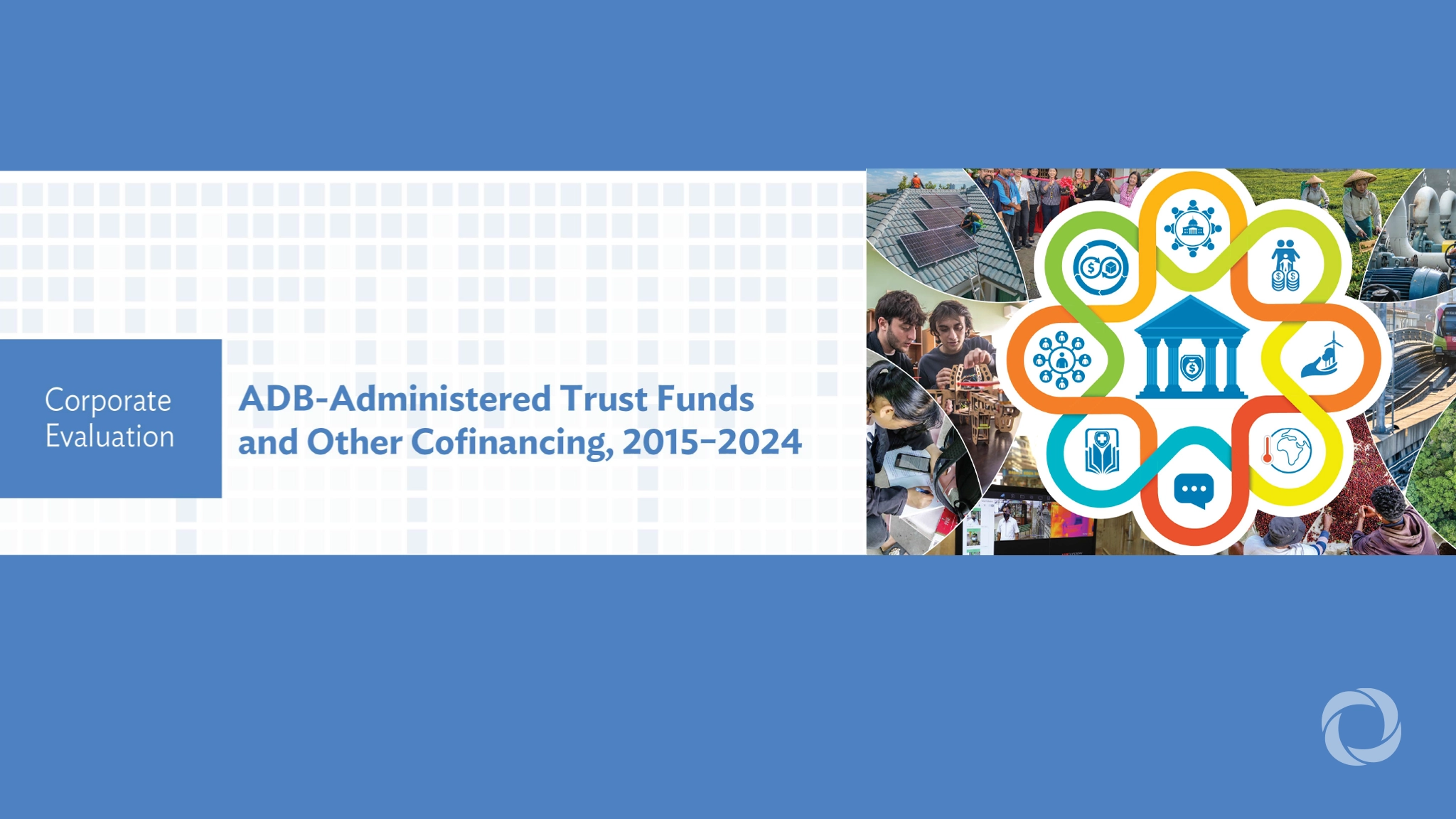A new corporate evaluation by the Asian Development Bank’s (ADB) Independent Evaluation Department finds that ADB-administered trust funds and other cofinancing mechanisms have added significant value to development efforts in Asia and the Pacific, particularly by supporting innovation and climate priorities, the bank reported. The report highlights systemic gaps in strategic coherence, institutional coordination, and monitoring that need urgent attention to optimize impact. Covering the period 2015–2024, the evaluation reviewed ADB-administered trust funds and project-specific cofinancing, including global funds, that together mobilized $14.7 billion for development across the region.
“Trust funds and cofinancing have been a vital source of innovation and partnership for ADB,” said IED Director General Emmanuel Jimenez. “They allow us to pilot new ideas, scale up successful models, and respond to emerging priorities. With stronger systems and a clearer strategic approach, these resources can deliver even greater impact for the region.” These resources have been instrumental in piloting new approaches, scaling up successful models, and supporting global public goods.
The report notes that while trust funds align with ADB priorities, their effectiveness is difficult to measure due to weak monitoring systems. Disbursement delays and fragmented IT platforms further hinder performance. Compared with peer institutions, ADB’s approach to blended finance governance was seen as more complex and rigid. “Our evaluation shows that trust funds and cofinancing can catalyze innovation and scaling up, but ADB must professionalize fund management and strengthen governance,” said Principal Evaluation Specialist and team leader for the report Garrett Kilroy.
In addition to recommending a clear strategic framework, the report calls for a consolidated cofinancing policy, stronger senior-level oversight, and a more coordinated approach to fundraising and donor engagement. It stresses the need for better monitoring and evaluation systems and calls for streamlined blended finance governance to make operations more efficient and competitive. “Clearer strategy, more integrated IT systems, and enhanced capacity will help unlock their full potential,” Kilroy added.
As development finance becomes more fragmented and concessional resources decline, the evaluation offers timely insights for ADB and its partners to ensure support through trust funds and cofinancing maximizes ADB’s development impact. The report’s recommendations come at a time when multilateral development banks are under pressure to demonstrate value for money and improve operational efficiency. By addressing the identified gaps, ADB can better position itself to mobilize resources and deliver results for the region.

